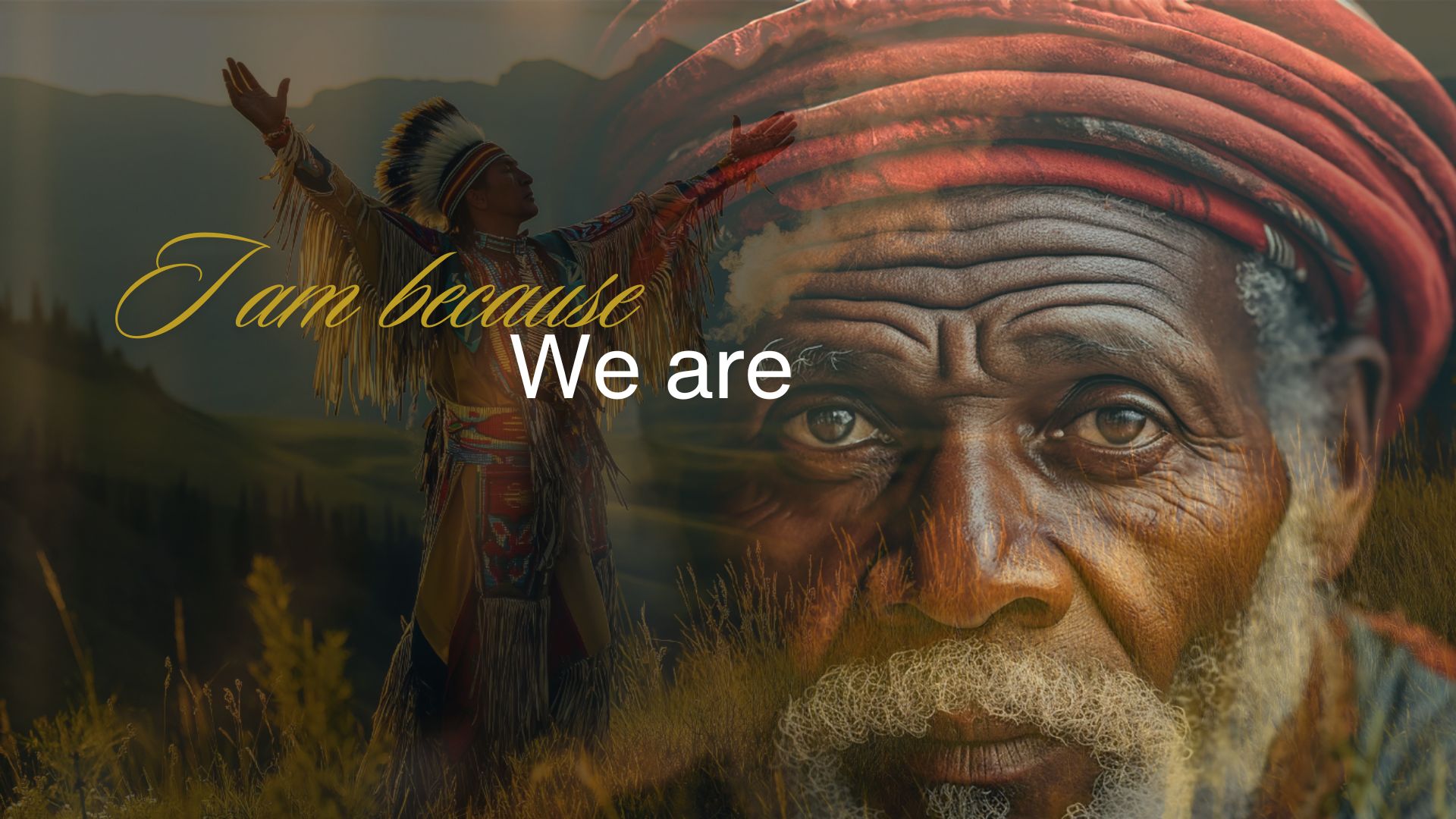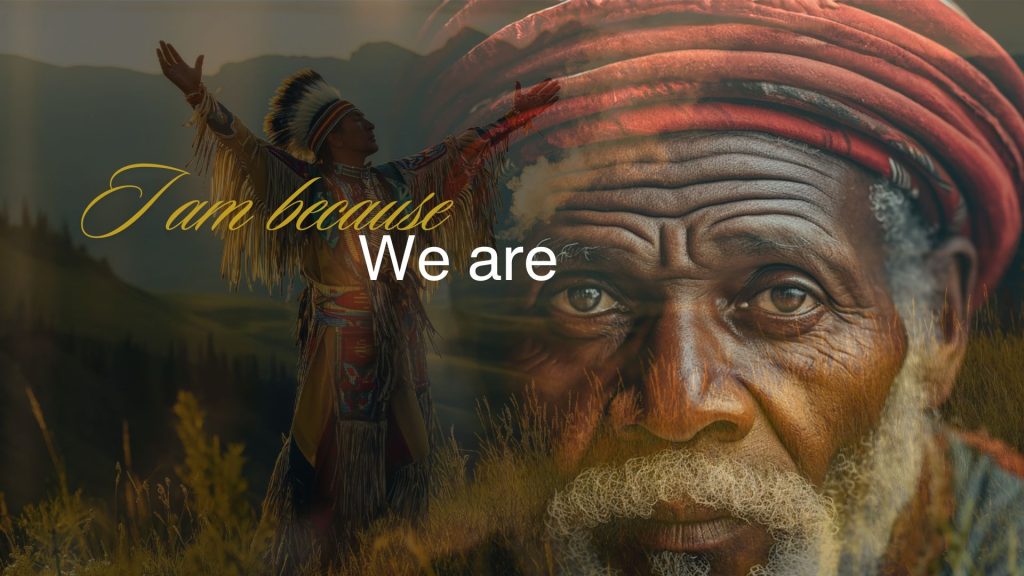Choose Your Path

3-Day Becoming Method® Intensive Training

RN-Psychotherapist Program
🕒 6–8 Months
On-line + Live 3-Day Intensive
For Registered Nurses including NPs, CNSs & PSWs
Apply Now


🕒 6–8 Months
On-line + Live 3-Day Intensive
For Registered Nurses including NPs, CNSs & PSWs
Apply Now
🔔 Limited Seats Available!

🔔 Limited Seats Available!
🔔 Limited Seats Available!

Enroll by April 2025
Fridays: 2:00-4:00 PM EST
Learn with D2L
French Coming Soon

Experience a transformative 3-phase journey that transcends social constructs, rekindles our shared humanity, and guides us toward a more authentic, conscious way of being.
In an increasingly diverse world, meeting patients and clients where they are—culturally and personally—is key to effective care. This course helps you understand and appreciate the richness of different backgrounds and perspectives through the lens of Ubuntu. By embracing these insights, you’ll learn to reduce misunderstandings, foster an inclusive environment, and communicate in ways that genuinely resonate with the people you serve. Ultimately, building this cultural competency makes your work more impactful, respectful, and rewarding for everyone involved.
Caring deeply for the people you serve doesn’t mean you have to run yourself into the ground. This course helps you strike a balance—teaching you how to maintain genuine empathy while also setting clear, compassionate boundaries. Learn how to stay focused, and continue providing high-quality care for the long haul. It’s about caring for others without losing yourself in the process.
Great care isn’t delivered alone—it’s a team effort. By embracing the principles taught in this course, you’ll learn to build trust, communicate openly, and create an environment where everyone’s contributions matter. Stronger teamwork leads to better problem-solving, smoother operations, and a more positive atmosphere for both your colleagues and the people you serve.
This advanced philosophical course takes students on a transformative journey through African and Indigenous ways of knowing, using Ubuntu as a foundational lens. Moving beyond established ideas, this course challenges students to transcend the boundaries of identity, culture, religion, and race, propelling them into new realms of thought about consciousness and reality.
By dismantling societal constructs and engaging with spiritual principles of interconnectedness, this course offers students a pathway to discover their highest state of being—one that unites all life beyond labels and categories.
Your Path to Success!
Placement Team
Success in this course is defined by a deep understanding and application of Ubuntu principles in personal, professional, and community contexts. Graduates will not only grasp the philosophical underpinnings of interconnectedness and collective humanity but will also be prepared to implement these concepts to foster community resilience and transformative change. Success involves developing a heightened sense of empathy, ethical leadership, and the ability to guide others in embracing community-oriented values.

Experience a transformative 3-phase journey that transcends social constructs, rekindles our shared humanity, and guides you toward a more authentic, conscious way of being.

Taught by 3 Instructors—Global Experts Bringing Depth, Insight, and Practical Experience

Explore the teachings of Nelson Mandela, Desmond Tutu, and other thought leaders who have embodied Ubuntu’s core principles of shared humanity and interdependence

This course takes a daring step by revealing race and cultural identity as ego-driven illusions—barriers that perpetuate division and limit our understanding of one another.

In just 12 Months, start your new career as a Certified Trauma Recovery Specialist.
Students will learn the foundational principles of Ubuntu and apply them as a lens through which they understand the interconnectedness of humanity and the dissolution of the self.

Students will gain a deep understanding of how race, nationality, and cultural identities are false constructs and will move toward a consciousness-based understanding of self.
Through reflective practices and philosophical engagement, students will learn how to transcend the ego’s attachment to societal identities, embracing a more expansive and unified sense of self.
Students will explore pathways to healing individual and collective traumas tied to race and cultural identity, focusing on spiritual practices and social transformation.
Students will leave the course with a vision for human evolution that transcends identity-based divisions and embraces unity, interconnectedness, and spiritual wholeness as foundational to societal well-being.
In the opening phase, the course ground students in the deep wisdom of Ubuntu, an ancient African philosophy that asserts: “I am because we are.” Students will explore the teachings of Nelson Mandela, Desmond Tutu, and other thought leaders who have embodied Ubuntu’s core principles of shared humanity and interdependence. Students will move beyond merely understanding Ubuntu as a philosophy of community to viewing it as a blueprint for a higher state of collective consciousness.
Students will be encouraged to reflect on how Ubuntu challenges the fragmented, individualistic consciousness dominating much of Western thought. Course readings, lectures, and assignments will help students move beyond seeing Ubuntu as a cultural philosophy and instead embrace it as the bridge to unlocking a more profound understanding of existence, one that dissolves boundaries between self and other.
Building upon the interconnectedness of humanity, Phase 2 dismantles the social constructs of race, nationality, and culture. While many thinkers have analyzed race as a falsehood, this course dares to go further, reframing race and cultural identity as illusions of the ego, designed to keep humanity trapped in division.
Students will engage with works by Frantz Fanon, Kwame Anthony Appiah, and Audre Lorde, but they will also be asked to think beyond these ideas.
The course will posit that biological and cultural markers are superficial constructs, created to maintain systems of oppression and separation. The true essence of identity lies in consciousness itself—not in race, gender, or nationality. Here, we shift focus from the external to the internal, from the physical to the metaphysical, and push students to question, “What is the nature of my reality?” and “What remains when all social identities are stripped away?”
In this final phase, students will embark on a deeper journey into the nature of consciousness and spiritual awakening. This phase focuses on transcending the ego and the false identities we attach to, such as race, nationality, and religion. The emphasis is placed on recognizing the interconnectedness of all life and embracing the oneness of existence. Drawing on spiritual and philosophical teachings, students will explore how these insights can heal racial, historical, and intergenerational wounds, and lead to societal transformation.
This phase will encourage students to engage in reflective practices, including meditation and journaling, to explore their personal and collective evolution toward a higher state of being. The goal is to move students toward a vision of human consciousness where connection and unity are not mere ideals but lived experiences that foster healing and growth at both individual and societal levels.
In just 12 Months, start your new career as a Certified Trauma Recovery Specialist.


Specialization: Intercultural and Indigenous Perspectives

Specialization: Blackness, anti-Blackness, Black masculinities

Specialization: Global Impact and Leadership Development
At The Becoming Institute, we are introducing a new philosophy through our Ubuntu course, designed to strongly influence leadership, community development, and work environments. When you choose our Ubuntu course, you’re not just enrolling in a training program—you’re embracing a transformative philosophy that empowers you to enhance professional and personal environments. Here’s what sets us apart:
Experience the transformative power of Ubuntu, accessible anywhere, anytime. This standalone course is uniquely designed to enrich professionals from various fields seeking to infuse Ubuntu principles into their practice. Whether you are part of our trauma recovery cohort or looking to broaden your professional and personal horizons independently, this course offers the flexibility to learn at your pace, fitting effortlessly into your lifestyle and commitments.
This course equips you with the advanced skills recognized by industry standards, making you a sought-after leader in fields that value genuine inclusivity and understanding beyond conventional DEI. Graduates of this program not only see a substantial increase in their earning potential but also become pivotal in transforming their workplaces into environments where diversity is truly valued and integrated.
We are invested in your success. Our 100% Placement Assistance ensures that you are job-ready upon graduation. From crafting standout resumes to preparing for interviews and networking with top employers, our support team is with you every step of the way.
Our 16-week Ubuntu course is designed to enhance your understanding of how racial identities, often perceived as fixed truths, impact workplace dynamics. Through this course, you'll gain the tools and insights needed to challenge and dismantle these racial constructs, promoting a more inclusive and authentic environment.
Join a community of like-minded professionals, alumni, and faculty who are passionate about creating change. Through workshops, mentorship programs, and alumni events, you’ll stay connected and inspired.
Register now and we’ll waive the $150 registration fee—keeping your total investment at $640
The Ubuntu course is a comprehensive educational experience that delves into African and Indigenous ways of knowing and being, using the philosophy of Ubuntu as a foundational framework. This course is designed to inspire students to think deeply about community, interconnectedness, and personal transformation.
This course is ideal for educators, community leaders, social workers, healthcare professionals, and anyone interested in learning about and applying Ubuntu philosophy to promote unity and transformation in various professional and personal contexts.
The course covers three main areas: the foundational principles of Ubuntu philosophy, the critique and rethinking of race and cultural identity as social constructs, and the application of these ideas in fostering societal change and personal growth.
Yes, the course includes community engagement projects and interactive sessions that provide practical experience. These activities are designed to help students apply the principles of Ubuntu in real-world settings, enhancing their understanding and skills.
Upon completion, students will have a profound understanding of Ubuntu that transcends academic knowledge, equipping them with the skills to foster community resilience and lead transformative projects. Graduates are expected to emerge as leaders who can implement community-centric initiatives effectively.
The Becoming Institute offers extensive support to students through mentorship, access to a network of professionals, and career services. These resources are designed to assist students in successfully applying their learning and securing roles that allow them to practice and promote Ubuntu principles.
For additional questions or to speak with an admissions advisor, please contact us at hello@lemonchiffon-frog-117233.hostingersite.com or call (647) 265-0804.
Every contribution makes a difference! Your support helps provide scholarships, resources, and opportunities for students to succeed. Together, we can transform lives and create a future of healing and empowerment.
Dr. Joan Samuels-Dennis,
Dean, School of Psychotherapeutic Innovations
Becoming Institute Inc